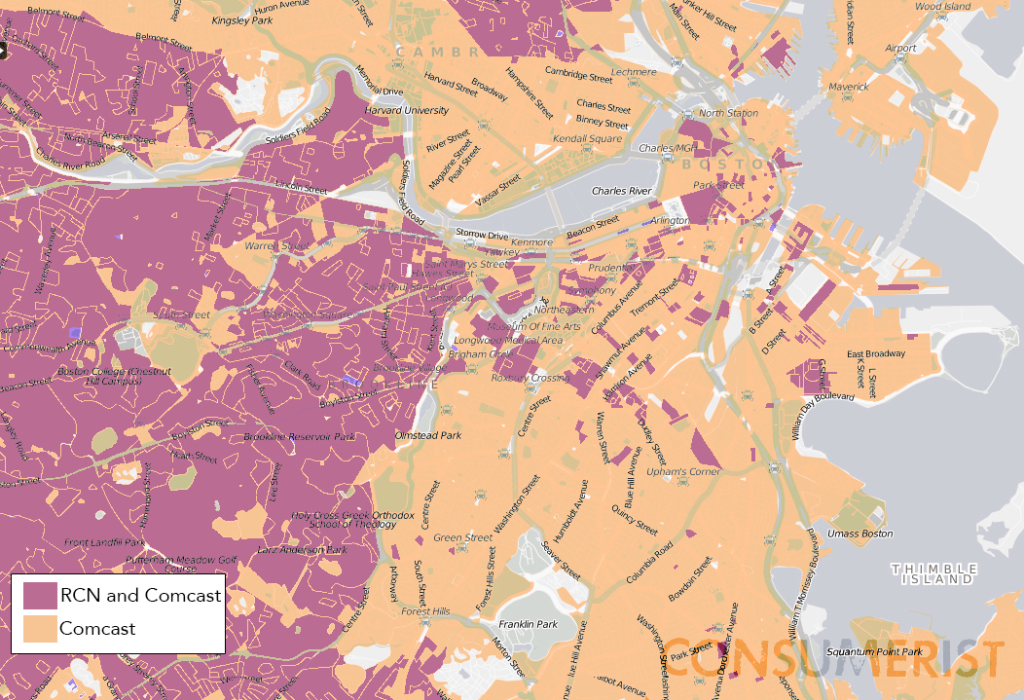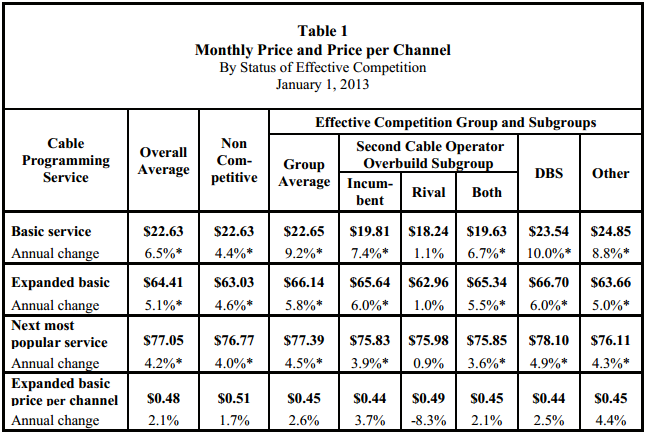FCC: Basic Cable Prices Increased At Four Times Rate Of Inflation Image courtesy of From the FCC report on pay-TV pricing.
According to the report [PDF], during 2012 the average price of the most basic cable package increased by 6.5% to $22.63. Meanwhile, inflation in the U.S. that year was only 1.6%.
Rates for the more popular “expanded basic” packages jumped up 5.1% to $64.41 in 2012, more than three times the rate of inflation.
And this isn’t just a short-term trend. Over the 18-year period from 1995 to 2013, cable rates increased 6.1%, while the Consumer Price Index’s compound average annual rate of growth over this same time period was only 2.4%.
Even more worrisome is that the rates quoted above do not include equipment charges and fees. In recent years, cable companies recently began increasing the monthly fees charged for equipment that had once been built into the monthly rate for TV service.
According to the FCC’s numbers, “equipment prices for basic and expanded basic services increased by 4.4 percent and 4.2 percent, respectively” in 2012.
Interestingly, the existence of “effective competition” in a market resulted in higher average prices. In markets without competition, the average price for expanded basic packages increased by 4.6% while those “effective competition communities” saw average rate hikes of 5.8%.
Now, this doesn’t necessarily mean that competition drives prices up. It hinges on the FCC’s use of the very specific term “effective competition,” which only occurs when a pay-TV operator successfully petitions the FCC to declare there is competition in a certain market.
If a market is determined to be effectively competitive, the cable operators are no longer restricted by local pricing regulations.
Let’s look at the example of Boston, where Comcast had convinced the FCC in the early part of the 21st century that the minor presence of RCN in the area made the market effectively competitive, meaning Comcast no longer had to follow Boston’s cable pricing rules.
In the decade that followed, RCN never managed to improve its market share but Comcast was able to keep jacking up rates. In 2012, then-mayor Thomas Menino was able to successfully petition the FCC to let the city reinstate those pricing restrictions after demonstrating that there was no actual competition in the city for cable and broadband, a point that is all too evident in this map we made a couple months back:

Additionally, satellite service can count as competition. While comparing a terrestrial cable company to a satellite provider may have been an apples-to-apples comparison in 2000, it is not in 2014, as cable operators generally offer broadband Internet access that satellite operators have generally been unable to match in terms of speed and reliability.
Shocker: Cable TV prices went up four times the rate of inflation [ArsTechnica]
Cable Prices Have Risen Four Times the Price of Inflation [DSLreports]
Want more consumer news? Visit our parent organization, Consumer Reports, for the latest on scams, recalls, and other consumer issues.


